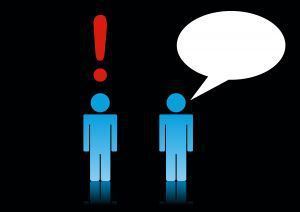Finding Your Shortcomings Is A Good Thing
I think most people look at shortcomings as a fault,
something inside us that needs fixing.
But, to me, shortcomings are really just a view into
the stronger, better side of us.

copyright ilco
I sent the latest draft of Yesterday People, Book 3 in the Past Life Series, to my beta reader a couple of weeks ago. This after having shown her a previous version and her telling me that the middle section pretty much didn’t work and that it had to be rewritten. So, knowing she hadn’t read through to the end, I ripped apart the whole middle, made it stronger and better, and shipped it back. Then, I got the call from my beta reader last week after she’d read the entire revision, beginning to end, where she told me that, nope, the blasted thing still needed major work.
As usual, her comments and suggestions were spot-on. But that got me to thinking: what is it about someone focusing on our shortcomings (in this case, the faults in my latest book) that make us think we’re less than we really are?

copyright fodor
I wonder if this is a case of the glass is half full or the glass is half empty. When faced with someone’s positive (emphasis on the word positive) criticism of you, or something you do or say, why do we knee-jerk to that critique even though we know it’s accurate?
Human nature, maybe? That’d be my guess.
When someone offers up suggestions to improve ourselves, we face two choices: (1) take the critique personally and ignore it, and maybe even argue with the critiquer to prove they’re wrong, or (2), take the critique to heart, think it out, let it sit for a bit, and then decide what action you need to take.
The difference is that one choice will never give you the opportunity to grow, and might even close you off to new or difference experiences. And the other may be a little painful to go through, but it’ll help you discover new ways of looking at yourself and the life around you.

copyright marzini
This is how it is for writing books, too. When my beta reader comes back and tells me, with a sure and deft hand, that some (or a lot) of my storytelling sucks, I could knee-jerk and tell her that she’s wrong and that she has no idea what the heck I’m writing about. But that’s a one-sided point of view. I mean, none of us sees ourselves for what we truly are. We think we do, but we don’t, and certainly not with the perspective that someone else can bring into the picture.
So I’ve learned over time with my writing to keep an open mind when it comes to suggestions and criticism. And, in a way, that’s translated into my life, too. After all, I have those two choices, right? Either ignore and not grow, or take the comments to heart and find a way to become an even better writer (or person). Because, after all, shortcomings are really a window into the stronger, better side of us. The part of us that can be so much more.
Don’t you think?
___________________________________________________
Copyright © 2012-2014 · All Rights Reserved · TerriPonce.com
Filed under: Stories Behind The Stories Tagged: beta reader, editing, human nature, Past Life series, shortcomings, Terri Herman, Terri Herman-Ponce, Terri Ponce, writing, Yesterday People











